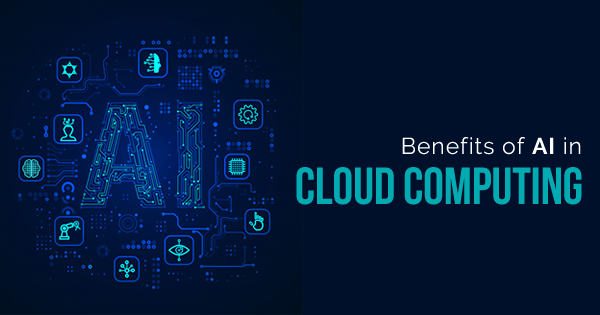Artificial intelligence (AI) and cloud computing represent two transformative technologies that, when combined, create a powerful synergy driving innovation across various industries. As organizations seek to extract actionable insights from vast amounts of data, AI technologies like machine learning (ML) and natural language processing (NLP) are increasingly integrated into cloud services. Let’s delve into the intersection of AI and cloud computing, examining how these technologies enable advanced capabilities and foster innovation.
Integration of AI in Cloud Services
- Machine Learning as a Service (MLaaS): Cloud providers offer MLaaS platforms that enable organizations to build, train, and deploy machine learning models without the need for significant upfront investment in infrastructure or expertise. These platforms provide access to pre-built algorithms, data processing pipelines, and model deployment capabilities, democratizing AI for organizations of all sizes.
- Natural Language Processing (NLP) in Cloud Applications: Cloud-based NLP services empower organizations to analyze and derive insights from unstructured text data, such as customer reviews, social media posts, and support tickets. These services offer features like sentiment analysis, named entity recognition, and language translation, enabling organizations to enhance customer experiences, automate business processes, and extract valuable insights from textual data.
- AI-Driven Analytics and Insights: Cloud-based analytics platforms leverage AI and ML algorithms to analyze large volumes of structured and unstructured data, uncovering patterns, trends, and anomalies that drive informed decision-making. These platforms offer capabilities such as predictive analytics, anomaly detection, and personalized recommendations, empowering organizations to derive actionable insights and optimize business outcomes.
- AI-Enabled Automation: Cloud computing enables organizations to leverage AI-driven automation tools for streamlining repetitive tasks, optimizing workflows, and improving operational efficiency. AI-powered automation solutions automate processes such as data ingestion, data preparation, model training, and deployment, accelerating time-to-value and reducing manual intervention.
Advantages of AI-Enabled Cloud Computing
- Scalability and Flexibility: Cloud computing provides scalable infrastructure and resources that accommodate the computational demands of AI workloads, enabling organizations to scale resources up or down based on workload requirements. This elasticity facilitates experimentation, innovation, and agility in AI development and deployment.
- Cost-Effectiveness: Cloud-based AI services offer a pay-as-you-go pricing model, allowing organizations to leverage AI capabilities without incurring significant upfront costs. By paying only for the resources consumed, organizations can optimize costs and maximize ROI on AI investments.
- Accessibility and Democratization: Cloud-based AI platforms democratize access to AI technologies, making them accessible to organizations of all sizes and industries. With pre-built models, APIs, and development tools available in the cloud, organizations can accelerate AI adoption and innovation without the need for specialized expertise or infrastructure.
- Integration and Interoperability: Cloud computing fosters integration and interoperability between AI services, data sources, and applications, enabling seamless data exchange, workflow orchestration, and collaboration. This integration streamlines AI development, deployment, and integration into existing business processes and systems.
Use Cases of AI-Driven Cloud Computing
- Predictive Analytics: Organizations leverage cloud-based AI platforms to develop predictive models that forecast future trends, behaviors, and events. Use cases include predictive maintenance in manufacturing, demand forecasting in retail, and risk assessment in finance.
- Personalized Recommendations: E-commerce platforms utilize AI-driven recommendation engines deployed on cloud infrastructure to deliver personalized product recommendations to customers based on their browsing history, preferences, and purchase behavior.
- Language Translation and Sentiment Analysis: Social media platforms and customer service organizations leverage cloud-based NLP services to translate content into multiple languages, analyze sentiment, and respond to customer inquiries in real-time.
- Image and Video Analysis: Cloud-based AI services enable organizations to analyze images and videos at scale, extracting insights such as object detection, facial recognition, and content moderation. Use cases include surveillance, medical imaging, and content filtering.
The intersection of artificial intelligence and cloud computing represents a paradigm shift in how organizations leverage technology to drive innovation, enhance decision-making, and deliver value to customers. By integrating AI technologies like machine learning and natural language processing into cloud services, organizations can unlock advanced capabilities, streamline operations, and accelerate digital transformation. As AI-driven cloud computing continues to evolve, organizations must embrace this synergy to stay competitive, agile, and resilient in today’s rapidly changing business landscape.
By Our Media Team
Our Editorial team comprises of over 15 highly motivated bunch of individuals, who work tirelessly to get the most sought after curated content for our subscribers.




